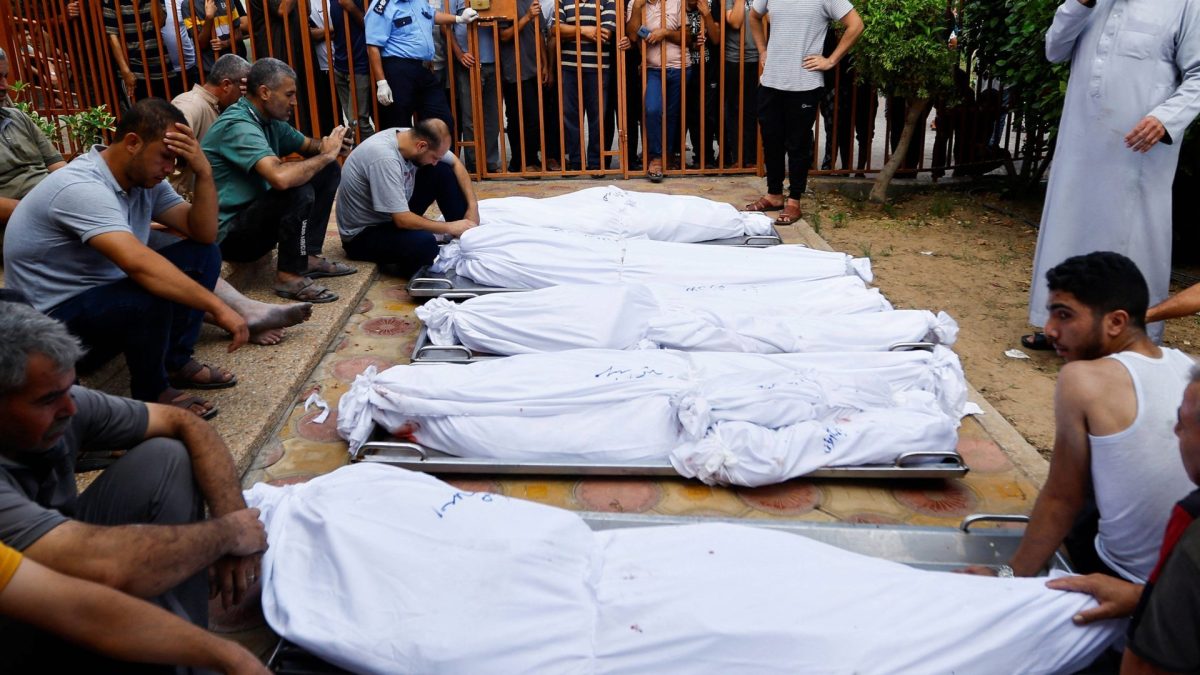Noting Gaza’s overstretched hospitals had only a few hours of electricity a day, with fuel being rationed to maintain critical services including intensive care, and X-ray and dialysis services, the United Nations’ health agency called for the opening of a humanitarian corridor to allow health workers into the territory, as well as the evacuation of the sick and injured.
It said shortages of medical supplies were also severe and that time was running out to prevent a humanitarian disaster in a territory that is home to more than two million people.
“Without the immediate entry of humanitarian aid into Gaza – especially health services, medical supplies, food, clean water, fuel, and non-food items – humanitarian and health partners will be unable to respond to urgent needs of people who desperately need it,” the agency announced in a statement late on Thursday.
“Each lost hour puts more lives at risk,” it added.
The International Committee of the Red Cross (ICRC) also raised concern about the deteriorating situation in Gaza, describing the situation as “abhorrent”.
“As Gaza loses power, hospitals lose power, putting newborns in incubators and elderly patients on oxygen at risk. Kidney dialysis stops, and X-rays can’t be taken,” Fabrizio Carboni, the regional director for the Near and Middle East for the ICRC said in a statement on Friday.
“Without electricity, hospitals risk turning into morgues,” Carboni added.
Israel has announced it has dropped about 6,000 bombs on Gaza since it began its bombardment almost a week ago following an attack by the armed Hamas group that caught its security forces off-guard and killed more than 1,300 Israelis.
At least 1,500 Palestinians have been killed in the subsequent onslaught and thousands more injured as Israel prepares for a possible ground assault on the enclave.
Gaza has about 30 hospitals, 13 of them operated by the Ministry of Health and others privately run.
The WHO said it had documented 34 attacks on healthcare services in Gaza since Saturday. By yesterday, 11 WHO health workers had been killed while 16 were injured. Another five ICRC workers were killed. The WHO added 20 ambulances had also been hit.
The agency called for the immediate opening of the Rafah border crossing on the border with Egypt.
“WHO is ready to immediately dispatch trauma and essential health supplies … to ensure that they can reach the Gaza Strip via the Rafah border crossing,” the WHO said.
“Urgent access through the crossing is essential so that WHO and other humanitarian agencies can act quickly to help save lives,” it added.
The United Nations has also announced that more than 423,000 people have now been forced to flee their homes in Gaza due to the Israeli military onslaught against the besieged enclave.
The number of displaced people in Gaza rose by an additional 84,444 people late on Thursday and has now reached 423,378, the UN’s Office for the Coordination of Humanitarian Affairs (UNOCHA) said.
UNOCHA also issued an emergency appeal for $294m to address “the most urgent needs” of Palestinian people in Gaza and the occupied West Bank.
The funds are needed to help more than 1.2 million people, added UNOCHA, stressing that aid groups do not have “the resources required to adequately respond to the full range of needs of vulnerable Palestinians”.
The head of the World Health Organization on Thursday said he has asked Egypt to help transfer medical supplies to neighboring Gaza as the humanitarian crisis in the enclave deepens under Israeli bombardment.
WHO Director-General Tedros Adhanom Ghebreyesus stated Egyptian President Abdel Fattah El-Sisi had agreed to help in transferring medical supplies through the crossing that connects Egypt with southern Gaza.
“I’m really worried. My heart goes to all those who have lost their lives and their families both from Israel and Palestine. This is a very sad moment,” he told reporters in Lyon, France.
Under the Israeli siege, the only corridor through which Palestinians or aid can pass in and out of Gaza is the Rafah Crossing that borders Egypt.
Supplies have dwindled so low at hospitals in Gaza that it is feared the hospitals will become morgues.
Avril Benoit, executive director of Doctors Without Borders USA, told CNN on Thursday that one hospital used three weeks of supplies within three days due to the influx of patients.
As a result of the siege, she said there is a looming crisis as hospitals are not able to bring in more supplies, fuel, water and staff.
“The situation in the hospitals is absolutely overwhelming,” Benoit continued, adding, “I do agree with the analysis and the commentary from the International Committee of the Red Cross that the hospitals will become morgues.”
Benoit said that without electricity critical patients — like babies in incubators, people on dialysis and those on respirators — would be without care.
“What we are hearing from the hospitals that we support is that it is very difficult for patients to even reach the hospitals,” she noted, adding, “Everyone is just terrified to move.”
“It’s impossible for staff sometimes, medical staff, to be able to go to work. And if they do go to work they don’t know if they will ever see their families again at night.”
She stressed hospitals are running short on anesthesia to do surgeries and even four ambulances were destroyed by air strikes as they were transporting patients.
